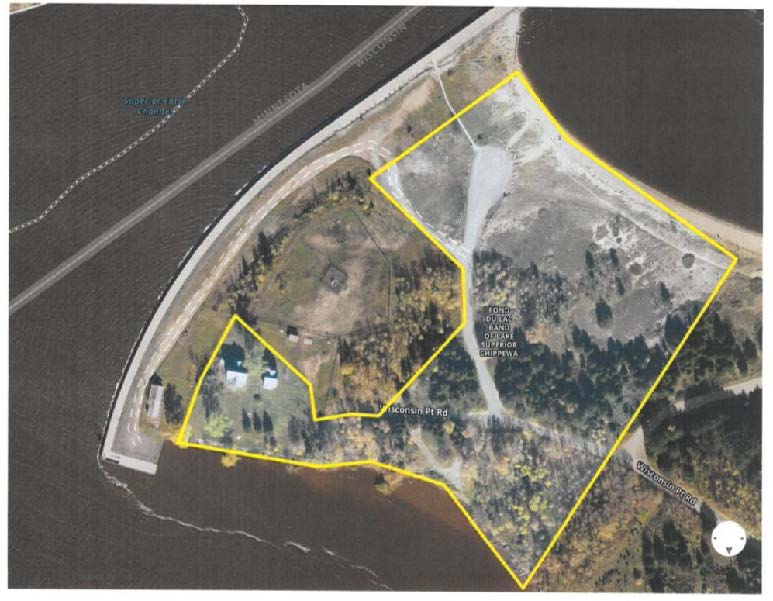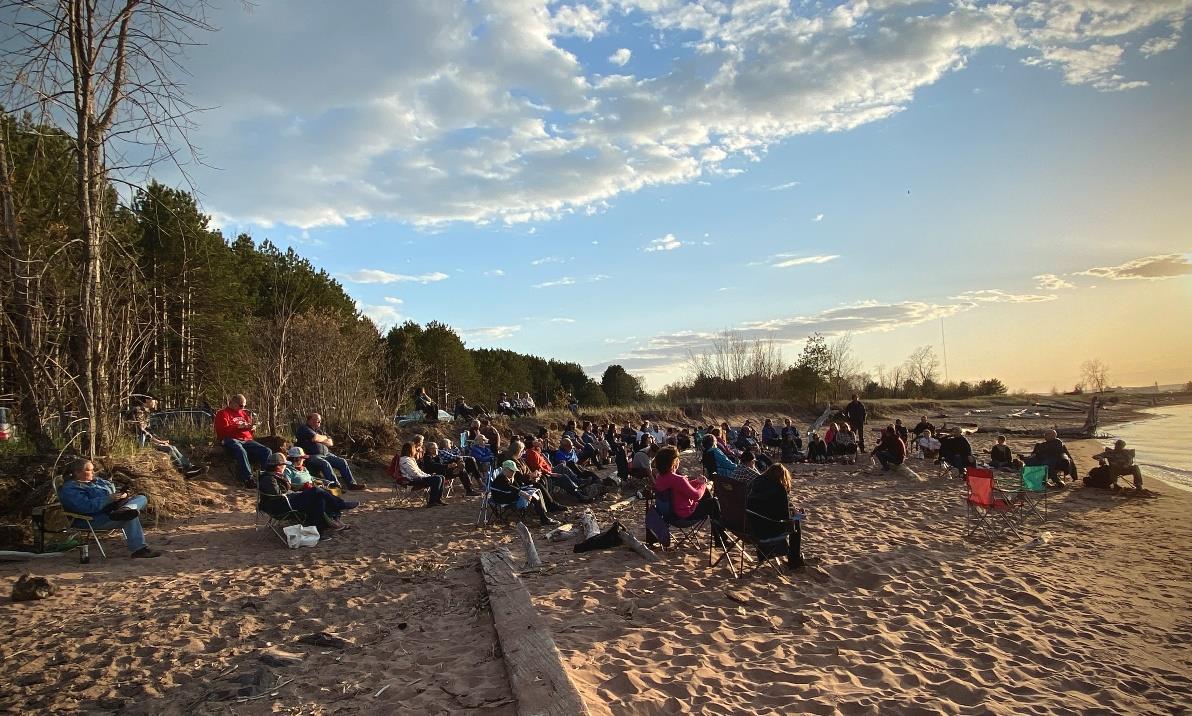TYPE
The Fond du Lac Band of Lake Superior Chippewa and the Lake Superior National Estuarine Research Reserve have received nearly $350,000 to create a plan for the restoration and future stewardship of 10.9 acres of land regained by the Band at the western end of Lake Superior’s Gibiskising Minis (land bridge, Wisconsin Point), an extensive sand bar across the mouth of Chi-gami ziibi (great sea river, St. Louis River) of tremendous ecological, cultural and historic importance.
The award was selected for Bipartisan Infrastructure Law funding through the National Oceanic Atmospheric Administration’s Office for Coastal Management. It funds an archeological and cultural survey and an engagement process to create a restoration design that meets community needs. This information, collected over 2024-2025, will be integrated into construction documents and a plan for the area.
The project is expected to begin in August 2024. The funding is timely, as an EPA Brownfields Program action by the Fond du Lac Band removed two severely degraded historic buildings and associated contamination in late 2023 and into early 2024.
Fond du Lac Natural Resource Manager Thomas Howes said of the project “For Fond du Lac it is important to have our voice and presence in the area acknowledged as well as restoring some ecosystem function to an area so impacted by industry and development. For over 100 years the Ojibwe people and our story have been ignored, erased and forgotten. It is exciting to collaborate with partners toward a common vision of this important place in Ojibwe history.”
The plan will protect rare Lake Superior dunes through removal and consolidation of planned and unplanned roads and pathways and the restoration of native vegetation, increasing natural habitat. The restoration of Fond du Lac lands at Gibiskising-minis will also improve access to and quality of plant and animal communities that are not found on reservation lands, sustaining cultural practices, transmission of oral history and overall well-being. The project team expects restoration, recreation management and community outreach will greatly reduce off-roading, illegal dumping, and vandalism that occur at the site.
To develop the restoration design for Gibiskising-minis, the project engages an Ojibwe-led landscape architecture firm, Urban Ecosystems Inc., and archeological expertise through the 106 Group Cultural Resource Consulting. Urban Ecosystems Inc. also developed plans for the Waabizheshikana in western Duluth. The Lake Superior Reserve and the Fond du Lac Band collaborated on the project as part of an ongoing partnership in estuary education and stewardship.
Deanna Erickson, Director at the Lake Superior Reserve, expressed gratitude for being part of this project. “Gibiskising-minis has been a central and important place in the Lake Superior region for centuries. I feel lucky to support the Fond du Lac Band in taking care of this place long into the future.”

The Fond du Lac Band of Lake Superior Chippewa is a sovereign Ojibwe nation and one of six bands of the Minnesota Chippewa Tribe. Nagaajiwanaang, “Where the Water Stops,” is the name of the homelands of the Fond du Lac Band at the time of the 1854 Treaty. We retained this name in Ojibwemowin for the present-day Fond du lac Reservation that was established under the 1854 La Pointe Treaty. There are three districts that make up the Fond du Lac Reservation: Bapashkominitigong (Cloquet), Gwaaba’iganing (Sawyer), and Ashkibwaakaaning (Brookston). Today, our Band includes over 4,000 members. We have always been, and continue to be, a proud sovereign Ojibwe nation. We uphold all of our rights retained and agreed to within the 1825, 1826, 1837, 1842, 1847, and 1854 Treaties.
The Lake Superior National Estuarine Research Reserve is one of 30 Reserves that conduct research, education, outreach, and stewardship on estuaries in the United States. The program is operated by the University of Wisconsin-Madison Division of Extension with leadership from the National Oceanic and Atmospheric Administration and based on the UW-Superior campus. The Reserve encompasses over 16,600 acres of public lands along the St. Louis River freshwater estuary.
